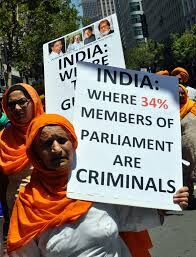Sajjan Kumar conviction: Justice prevailed or Justice rebutted
20 Dec 2018 11:12 PM IST
There was a mob outside the freshly cemented walls of our colony wildly tearing it down and demanding that all the Sikh families be handed over to them. I saw death hollering a few steps away, not approaching us but those that we shielded, I knew helplessness that night.
0
Next Story




